How To Make Fictional Settings Real (Even If You’re Faking The Whole Thing)
How to Make Fictional Settings Real (Even If You’re Faking the Whole Thing)
➤ Real Estate Listings (Yes, Seriously)
Looking up local listings in a place similar to your fictional town or city gives you surprising insight—average home styles, neighborhood layouts, what “affordable” means in that region, even local slang in the listings. + Great for, grounding your setting in subtle realism without hitting readers over the head with exposition.
➤ Google Street View (Time to Creep Around Like a Setting Spy)
Drop into a random street in a town that resembles your fictional setting. Walk around virtually. Notice what's boring.Trash cans, streetlights, sidewalk cracks, old ads. + Great for: figuring out what makes a setting feel “normal” instead of movie-set polished.
➤ Local Newspapers or Small Town Reddit Threads
Want voice? Culture? Weird local drama? This is where it lives. What’s in the classifieds? What’s pissing people off at town hall? + Great for: authentic small-town flavor, conflict inspiration, and the kind of gossip that fuels subplot gold.
➤ Fantasy Map Generator Sites (Even for Contemporary Settings!)
Not just for epic quests. Generating a map, even a basic one, can help you stop mentally teleporting your characters between places without any sense of space or distance.+ Great for: figuring out how long it takes to get from the protagonist’s house to that cursed gas station.
➤ Music from or Inspired by the Region/Culture
Even fictional cities deserve a soundtrack. Listen to regional or cultural playlists and let the vibe soak into your setting. What kind of music would be playing in your character’s world? + Great for: writing atmospherically and getting in the right emotional headspace.
➤ Online Menus from Local Diners, Restaurants, or Cafés
You want a setting that tastes real? Look at what people are actually eating. + Great for: writing scenes with meals that aren’t just “some soup” or “generic coffee.” (Also, bonus points for fictionalizing weird specials: “Tuesday Fish Waffle Night” is canon now.)
➤ Yelp Reviews (Especially the One-Star Ones)
Looking for a spark of chaos? One-star Yelp reviews will tell you what your characters complain about and where the best petty drama lives. + Great for: worldbuilding quirks, local tensions, and giving your town character.
➤ Real Estate “Before/After” Renovation Blogs
You’ll find the bones of houses, historical details, and how people preserve or erase the past. + Great for: backstory-laced settings, haunted houses, or any structure that’s more than just a place, it’s a story.
➤ Old Travel Books or Tourism Brochures
Especially the outdated ones. What used to be considered “the pride of the town”? What’s still standing? What was erased? + Great for: layering a setting with history, especially for second-generation characters or stories rooted in change.
More Posts from Writersreferencez and Others
Good tips for writing anything, not just role-plays!!
Common grammatical errors and how to correct them!
your vs. you’re
your: belonging to you. For instance “Is this your bag?”
you’re: an abbreviation of you are. For instance “You’re so nice.”
they’re vs. their vs. there
they’re: an abbreviation of they are. For instance “They’re coming this way.”
their: belonging to a group of people or person of unspecified gender. For instance “This is their classroom.”
there: referring to a place. For instance “Will you follow me over there?”
The word “independent” contains no a’s. Commas can change the whole meaning of a phrase. For instance: Let’s eat grandma! vs. Let’s eat, grandma! A good rule of thumb for comma usage (although not perfect) is to read the sentence aloud. If you find yourself pausing between words, that’s a good indication a comma should be there.
Capitalization Proper nouns should be capitalized. This includes names of people, places, and things. However, other nouns will not need it. For instance: you would capitalize “Susan”, ”New York”, and “Eiffel Tower” because those are proper names, but things like “that girl”, “this city”, and “the structure” wouldn’t need it. The first word of a sentence should also be capitalized!
I hope this helps all of you wonderful writers! Have a lovely day and enjoy your RPing! <3
How to avoid White Room Syndrome
by Writerthreads on Instagram
A common problem writers face is "white room syndrome"—when scenes feel like they’re happening in an empty white room. To avoid this, it's important to describe settings in a way that makes them feel real and alive, without overloading readers with too much detail. Here are a few tips below to help!
Focus on a few key details
You don’t need to describe everything in the scene—just pick a couple of specific, memorable details to bring the setting to life. Maybe it’s the creaky floorboards in an old house, the musty smell of a forgotten attic, or the soft hum of a refrigerator in a small kitchen. These little details help anchor the scene and give readers something to picture, without dragging the action with heaps of descriptions.
Engage the senses
Instead of just focusing on what characters can see, try to incorporate all five senses—what do they hear, smell, feel, or even taste? Describe the smell of fresh bread from a nearby bakery, or the damp chill of a foggy morning. This adds a lot of depth and make the location feel more real and imaginable.
Mix descriptions with actions
Have characters interact with the environment. How do your characters move through the space? Are they brushing their hands over a dusty bookshelf, shuffling through fallen leaves, or squeezing through a crowded subway car? Instead of dumping a paragraph of description, mix it in with the action or dialogue.
Use the setting to reflect a mood or theme
Sometimes, the setting can do more than just provide a backdrop—it can reinforce the mood of a scene or even reflect a theme in the story. A stormy night might enhance tension, while a warm, sunny day might highlight a moment of peace. The environment can add an extra layer to what’s happening symbolically.
Here's an example of writing a description that hopefully feels alive and realistic, without dragging the action:
The bookstore was tucked between two brick buildings, its faded sign creaking with every gust of wind. Inside, the air was thick with the scent of worn paper and dust, mingling with the faint aroma of freshly brewed coffee from a corner café down the street. The wooden floorboards groaned as Ella wandered between the shelves, her fingertips brushing the spines of forgotten novels. Somewhere in the back, the soft sound of jazz crackled from an ancient radio.
Hope these tips help in your writing!
How to show emotions
Part VI
How to show insecurity
not holding/breaking eye contact
fidgeting
crossing their arms
trying to cover up their body
making themself seem smaller
playing with their hands
hiding their hands in their pockets
holding their head down
blushing
clearing their throat
biting their nails
biting their lips
nervous laughter
stuttering
How to show being offended
stiffening up
hard line around the lips
frozen stare
narrowing of the eyes
turning their head to the side
quickening heartbeat
turning red
making themself bigger, ready to fight
How to show compassion
gentle and soft smile
relaxed facial features
softening of their eyes
openly showing how they feel
leaning towards the other one
nodding along, not directly interjecting, but encouraging
deep breaths inbetween
gentle touches to comfort
How to show being pleased
big smile/grinning
laying head slightly to the side
moving one shoulder up
pursing their lips while smiling
very open body language
leaning back
Part I + Part II + Part III + Part IV + Part V
If you like my blog and want to support me, you can buy me a coffee or become a member! And check out my Instagram! 🥰
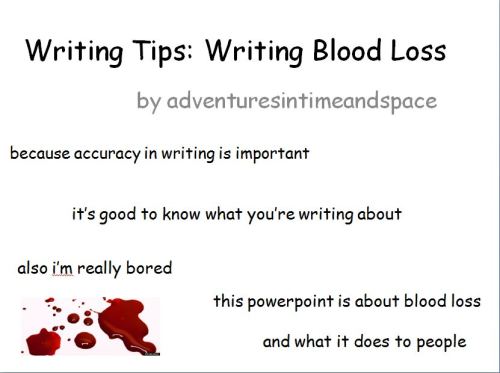
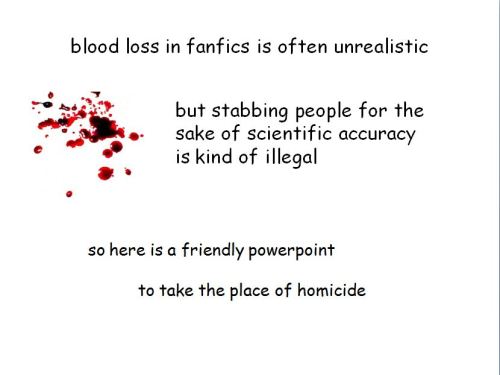

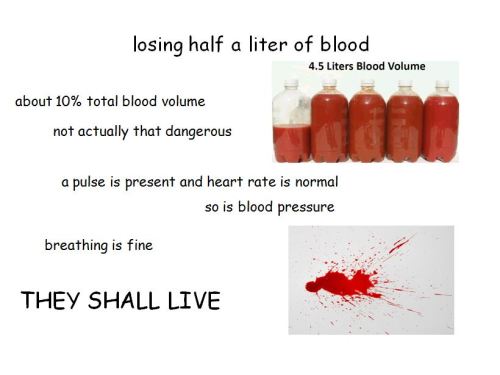
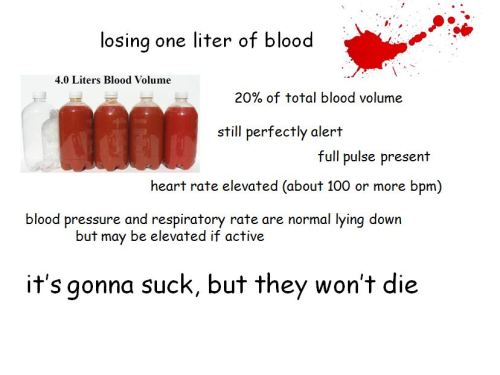
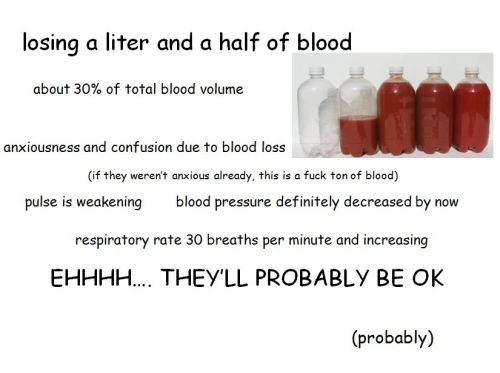



Here are some scientific facts about blood loss for all you psychopaths writers out there.
The Editing Agenda: Those Darn Dashes

When it comes to formatting and punctuation issues, hyphens and dashes take the cake. Their use in books is incredibly inconsistent, which leads to a lot of confusion for anyone trying to learn them. This article will give a thorough breakdown of each kind and their uses as they pertain to fiction. Keep in mind that the rules I’m covering are the ones that are the most beneficial for fiction writing—there are some that won’t be addressed in this post. And all rules mentioned are based on The Chicago Manual of Style, 16th Edition.
Hyphens
Phrasal Adjectives
Phrasal adjectives are a short group of words (usually two but sometimes three or more) that link together to modify another noun. They typically precede the noun and are very common in fiction writing.
Example 1: rose-colored glasses
Example 2: four-chambered heart
A fantastic resource for this can be found on The Chicago Manual of Style website: http://www.chicagomanualofstyle.org/16/images/ch07_tab01.pdf
This chart shows you the breakdown of various combinations of adjectives and how they should be punctuated, including permanently hyphenated words and exceptions. The CMOS advises following Merriam-Webster’s dictionary for determining which words and phrases should always be hyphenated. Some of examples of this are the words life-form, run-down (not to be confused with rundown, which holds a different meaning), and short-lived.
Compound Name
Hyphens are also used for compound names, including surnames, first names, and other names.
Example 1: Merriam-Webster
Example 2: Mary-Kay
Example 3: Theta-Gamma
Word Division
The most common word division breaks where you’d find hyphens would be line breaks, syllable breaks (often used for pronunciation purposes), and prefixes and suffixes. Which isn’t all that common in fiction writing. However, you will often see it in dialogue, particularly with stuttering.
Example: “W-w-where’d you l-l-leave it?” Tom asked.
Separators
Hyphens can also be used to separate letters and numbers. That’s that type of thing you see with phone numbers, ID numbers, and the like. However, a great use for separation hyphens in fiction writing if when have a word that you need to spell out completely or partially.
Example: The sign read: “C-A-U-T.” The rest had long worn off.
En Dashes
Dates, Times, and Page Numbers
The en dash’s main purpose is to replace the word to. The most typical occurrence of this would be with dates, times, and page numbers.
Example 1: He held office from 1929–1932.
Example 2: The event is Saturday, 2:30p.m.–4:30p.m.
Example 3: Tonight’s assignment is to read pages 32–45.
You also might see this with scoring/votes and with an unfinished number range.
Example 4: We won our last game 13–2.
Example 5: The magazine (2003–) has produced six volumes so far.
However, you should always use the word “to” instead of an en dash if “from” precedes the range.
Example 6: He joined us from 11a.m. to 12p.m. but had to leave for lunch after that.
Directions and Compound Adjectives
En dashes are also sometimes used with words, as can be the case with directions.
Example 1: I took the London–Paris train last week.
And sometimes—very rarely—an en dash is used with compound adjectives. This is where it gets tricky because the intended meaning can often get muddled by using this method, so it’s usually best to reword and find a more elegant solution when possible.
Example 2a: I’d like to find more Taylor Swift–style music.
Example 2b: I’d like to find more artists like Taylor Swift.
Version 2b of the above example flows much better and is less confusing than the first, so it’s definitely the better choice.
And with two sets of compound adjectives where the sets are acting as coordinate adjectives to each other, a comma is the best option.
Example 3: This run-down, high-maintenance property will end up costing a lot of money.
Universities
The last use of en dashes is one that you probably won’t find in most fiction writing, but it’s useful to know nonetheless. You will sometimes find universities with multiple campus locations using an en dash to include the location name.
Example: I put my application in for Fordham University–Westchester.
Em Dashes
Em dashes are used to set off phrases and clauses in a manuscript that require an abrupt break, either to draw attention to it or because there is a large shift in the train of thought. This is one of the most useful tools an author has in fiction writing when it’s used correctly and sparingly. Note that em dashes should NOT be substituted with ellipses; the two serve different purposes.
Em Dashes vs. Ellipses
Em dashes are used for interruption or to set off an explanatory element. An ellipsis is used to indicate hesitation or trailing off.
Example 1: “Lucy, where did you put—”
“It’s none of your business!” Lucy shouted from the other room.
Example 2: I stumbled down the stairs—the power had gone out earlier that evening—before I found my way to the bathroom.
Example 3: “I don’t know…” I admitted. “I hadn’t really thought much about it.”
Interrupted Thoughts
Sometimes the interruptions can come in the form of narrative thoughts.
Example: Justin’s feet pounded against the ground as he blazed down the trail. Awesome. If he kept up the pace, he’d beat—a tree root caught his foot, and he was sent sprawling into the dirt.
And if you have a character that is having trouble forming a sentence due to the circumstances at hand and/or heighted emotions, em dashes can be used to indicate stammering between words (not syllables).
Example: “What I meant was—why can’t we—oh, just forget it,” Julie spat out.
Words and Phrases
An em dash can also be used to set off noun or pronoun at the beginning of the sentence.
Example: Cowards—they were the ones who sought power.
Another common use for the em dash is before the phrases “namely,” “that is,” “for example,” and others similar to those.
Example: We spent most of the afternoon in the garden—that is, until the heat got to be unbearable.
Note: You should never use em dashes within or immediately following an element that already has a set of em dashes. Not only would this look terrible aesthetically, but it could also cause potential misinterpretation.
Interrupted Dialogue
The last use of em dashes for fiction is probably one of the trickiest, but it can also be the most useful. If you have a line of dialogue that is split up by an action in the middle, you can use em dashes to set off that action.
Example 1: “Well, the thing is”—Tommy quickly turned his attention to his feet—“it’s just not working out between us.”
Note that the em dashes go outside of the quotation marks in such a case, and the quotation is a continuous line of dialogue that is being split. The first word of the dialogue after the split should be lowercase. You can’t use this method if you have two separate sentences that have an action in between. In that situation, you’d use periods.
Example 2: “You really mean it.” I could hear my voice catch in my throat. “I just don’t understand what happened.
Two-Em Dash
One type of em dashes that is not commonly used in fiction writing that is probably my favorite is the 2-em dash. The 2-em dash is used to omit words or parts of words that are missing or illegible, or to conceal a name. Two em dashes are most useful for the genres of fantasy, thriller, and mystery, where characters might come across documents that have damage to them. The example below is from a snippet of a work in progress of mine: book one of the Ansakerr series.
My dearest I——,
If you are reading this, I have long since p—— away. I can only pray that my —— box and this letter have fallen into your hands and your hands alone. There is much you have yet learn to about me. There is still a D——k O—— out there, one more dangerous than you can imagine. For now, you are protected, but be on your toes, my girl. One day soon, I fear the p—— will fade, and you’ll need to be ready. He is coming.
The key will lead you to A——. It will hold the answers you’re looking for.
Deepest love and affection,
Grandma Bea
Notice that most of the missing parts are for key elements, including names, places, and very specific items that are clearly key for the plot. If you craft these parts well, you can purposely mislead a reader in the narrative, giving a bit of a twist to your story.
Formatting and Stylistic Use
No spaces should be used around hyphens or dashes except in the case of the 2-em dash when it is being used to completely omit a word. This is probably the most common error regarding formatting of hyphens and dashes that I come across. Though there is some debate about spacing among various sources, the CMOS is pretty clear about it. But again, as with anything else in writing, consistency is the most important.
As for formatting the different dashes, mainstream word processors include symbols for each that you can insert into your document. In fact, some of them even automatically convert two hyphens used together into an em dash. While most publishers will accept em dashes in the form of two hyphens (in fact, some even request that you submit manuscripts that way), when it comes to actual printing and online publishing of the material, you’ll want to make sure they’re replaced. Your document will look more professional when you use the correct symbol, and your readers will likely notice as well.
Tip: To quickly find and replace any stray instances of two hyphens with an em dash symbol, use your word processors Replace function.
Lastly, when it comes to use with other punctuation, a question mark or an exclamation mark can precede an em dash, but never a comma, colon, or semicolon. In other words, if you use an em dash where one of the latter punctuation marks would typically be used, the dash takes the place of the punctuation.
Example: He bent down to tie his shoe—but he stopped when he saw Alyssa approaching.
Writing Description Notes: Mental Pain
Updated 3rd June 2024 More description notes
The hallucinations were the same as being tortured for real, all of the emotions, all of the trauma, and none of the empathy that would come with such a real life ordeal.
There was something in that shout, a pain behind it. John watched. He watched Jane’s eyes. Then he knew. The anger was nothing but a shield for pain, like a cornered soldier randomly throwing out grenades, scared for his life, lonely, desperate. He breathed in real slowly. What if nothing blew up? What if there were no consequences? Wouldn't John have to calm down? Wouldn't the shield clatter to the ground and let the pain tumble out?
John sees Jane. He does. He sees pain in her eyes. It has sat there for her lifetime, trapped in the confusion we all carry. He sees love too, the love she would have given were it not for the scars. It's still there, and one day he will set her free. John is not perfect, yet he loves her, and he knows what love means. He asks for a chance to find his feet, to stop his own head from spinning, and he will prove it. There is so much of her life that is a hell for her soul, and she stays there from strength rather than weakness, he knows. So he wants to join her in that pain, walk with her, feel the same torture he knows she bears. And one day, he will find just the right way to bring her home, his love.
Jane's emotional pain seeps out in her words, and it hurts John to hear them, hurts to read them. He senses what is inside that troubles her, yet also there is so much goodness there too—bravery, tenacity. She holds on like a fighter, every morning rising at the ringing of "the bell." All he can offer her is a brighter horizon, a hope that one day she will be free of all this. One day there will be choice, freedom, and security of food, shelter on a healthy Earth.
Emotional pain leaves invisible scars, yet they can be traced by the most gentle of touch.
Nobody wants to hurt, yet if John's pains can be used to help others, he feels blessed. Anyhow, perhaps his scars are his road-map; maybe he would be lost without them.
He turned towards him, a pained expression plastered across his face, teeth clenched as he tried to steady his breathing.
Gripping the ground as hard as he could to take some of the pain away.
It was as if a thousand needles of doubt and self-loathing were piercing her heart with each passing moment, leaving behind a tapestry of scars that only she could see.
It was as though a veil of sadness had been draped over her eyes, distorting her perception of the world and casting everything in shades of gray.
The weight of sorrow was a constant companion, pressing down on his shoulders until he felt he might collapse under its burden.
Her mind was a battlefield, each thought a landmine ready to explode with memories she wished she could forget.
The storm inside his head raged on, a relentless barrage of thoughts and fears that left him feeling exhausted and defeated.
It was as if a dark cloud had settled over his soul.
Her chest felt hollow, a yawning emptiness where joy and peace once resided, now replaced by a gnawing ache.
His mind was a prison denying him the freedom to live fully.
She felt like she was drowning in an ocean of despair, every attempt to surface met with another wave of hopelessness.
Every laugh felt hollow, every smile forced, as if she were playing a role in a play she didn't want to be in.
She felt like a ghost, wandering through life unnoticed, her pain invisible to everyone but herself.
The nights were the worst, when the darkness outside matched the darkness within, and sleep was a distant dream.
It was like a fire burning within, consuming all that was good and leaving behind nothing but ashes of what used to be.
The pain was a silent scream, a cry for help that no one could hear.
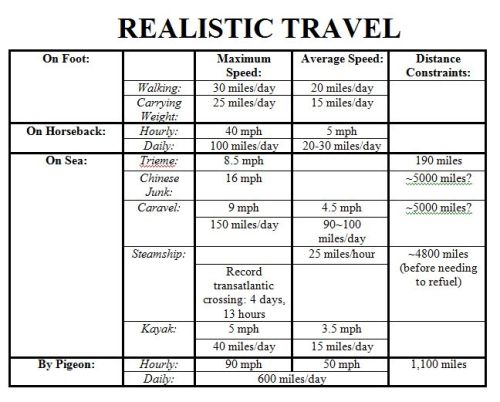
Here’s an invaluable writing resource for you.
PLEASE, PLEASE STOP SCROLLING.
BOOST, BOOST, BOOST! Especially if you don’t live in the U.S., because that’s all you can do to help us.
If you DO live here, this post has 5 things you can do; feel free to skip to the bullet points.
I’m sure you’re sick of seeing this, but we are in the final stages of the Net Neutrality repeal. I know long posts about this can be overwhelming, so at least just pick a bullet point and do it! HOPE IS NOT LOST YET.
WE STILL HAVE ONE LAST CHANCE — Until April 27th
There’s a CRA (Congressional Review Act) vote to get Net Neutrality back, and it may still win. THIS IS BECAUSE OF US!!! Enough people in congress listened to our calls, emails, and tweets, so a CRA has been called for to try and stop Ajit Pai.
Long posts about this can be overwhelming, so I’ll keep it simple and just list some quick and easy options below for how you can help save it. WE’VE ALREADY MADE PROGRESS, KEEP GOING! WE’RE SO CLOSE! I’m lucky enough to have the ability to do these, so I’m doing all of them, even though it’s hard for me. Do it for the people who can’t. Do it for those who will LOSE THEIR JOBS or their educations or their friends or their support. Do it for the kids too young to use a phone. Do it for the families who might be put out of homes. Do it for everyone.
WE NEED ONE MORE SENATE VOTE. DO AT LEAST ONE OF THESE 5 THINGS IF YOU’RE PHYSICALLY CAPABLE
[Info and Resources for Action]
FIRST OFF, if you don’t know what to say, here are some basic templates as well as my own that have had an effect in the past.
For your Senator’s contact info (phone/email/twitter/etc): http://act.commoncause.org/site/PageServer?pagename=sunlight_advocacy_list_page
[Action to Take]
KEY: bold = most important, *** = quickest/easiest to do
Here you can write anything and they’ll email it around: https://www.battleforthenet.com/
*** OR just scroll down and click a Senator to tweet them.
*** Just type your zip code here, and it’ll email/tweet your Senators! https://www.publicknowledge.org/act-now/tell-congress-to-use-the-cra-to-save-net-neutrality/#anchor
Text RESIST to 50409 (reply Senate, then copy any of the templates or write your own) — it’ll automatically email/fax it
*** Reblog, Retweet, and tell people as much as possible! But that alone isn’t enough. Get your friends/family/classmates to do these, too!!!
If you can do this last one, if you’re at all able, do it.
Call the Capitol at 202-224-3121. Just say where you’re from and they’ll transfer you to your senator’s office. Here’s a template for what to say:
“Hello, I’m [name], and I’m a constituent of Senator [name]. I’m calling to urge them to vote in support of net neutrality, as it is very important to the general public. I am watching their actions on net neutrality, and it will influence my vote in coming years. Thank you!”
(This also works as a great template for tweets/emails to your Senators)
Side Note: You can go here to see how many calls each of your Sen/Reps have already received: https://www.battleforthenet.com/scoreboard/ – it’s cool to see that a lot of calls CAN AND HAVE change(d) the vote!
THIS IS 2018 — WE CAN VOTE THEM OUT THIS YEAR AND THEY KNOW IT. USE THAT LEVERAGE.
There’s a fic on fanfiction(.)net that I’ve kept tabs on for years to see if it’s been updated or not. While I’m no longer even in the fandom it’s written for, it just has one of the greatest storylines I’ve ever read. Last time it was updated was 2011.
The other day, I decided to reread the entire thing and leave a very in-depth review of what I thought of each chapter. I also mentioned how I started reading it when I was 13 and am now 21, but always came back to see if it was ever finished because I loved it so dearly.
Today, said author sent me a private message saying that her analytics showed that the story was still getting views even after all these years, but no one ever bothered to leave reviews other than “update soon!!!”, so she never felt motivated enough to finish it. She said that me reviewing every single chapter with lengthy paragraphs made her cry and meant the world to her. She also mentioned that she felt encouraged to write the two remaining chapters needed to complete the story and that she would send me a message the night before she updates the fic.
I’m literally sobbing. I’m so excited :’)
Please always remember to leave a review when reading fanfiction!!! It means a lot to a writer.
Emotionally reserved characters
Instead of openly sharing their emotions with others, they keep their feelings locked inside, letting their inner thoughts do all the talking. You get a glimpse into their mind, where a storm of conflicts, doubts, and desires brews quietly beneath a calm exterior. This internal monologue allows readers to understand what’s going on inside their head, even if they don’t show it on the outside. It’s like seeing the world through their eyes, where every little thing stirs up a wave of emotions that they never express out loud.
For these characters, actions speak louder than words, but even their actions are restrained. They communicate their emotions through the smallest of gestures—a slight tightening of the jaw when they’re angry or hurt, a brief flicker in their eyes when they’re surprised, or a controlled change in posture when something makes them uncomfortable. These tiny, almost imperceptible movements can say so much more than an outburst ever could, hinting at feelings they would never openly share. It’s about what they don’t do as much as what they do.
When they do speak, every word is carefully chosen. Emotionally reserved characters don’t ramble or spill their feelings in a flood of words. Instead, they speak in a measured and controlled manner, always keeping their emotions in check. Their sentences are concise, sometimes even vague or indirect, leaving others guessing about what they’re really thinking. It’s not that they don’t feel deeply, they just prefer to keep those feelings close to the chest, hidden behind a mask of calm and composure.
For these characters, what they do is often more telling than what they say. They might not say “I care about you” outright, but you’ll see it in the way they go out of their way to help, the quiet ways they show up for the people they love. Their actions reveal their emotions—whether it’s a protective gesture, a silent sacrifice, or a kind deed done without expectation of recognition. It’s these unspoken acts of kindness that show their true feelings, even if they never say them out loud.
They often have strong personal boundaries. They keep their private lives just that - private. They don’t open up easily and are cautious about who they let into their inner circle. They might deflect conversations away from themselves or avoid sharing personal details altogether. It’s not that they don’t want to connect, it’s just that they find it hard to lower their walls and let others in, fearing vulnerability or judgment.
When they do show vulnerability, it’s in small, controlled doses. These characters may have moments where they let their guard down, but only in private or with someone they deeply trust.
Sometimes, emotionally reserved characters express their feelings through objects that hold special significance to them. Maybe it’s a worn-out book they keep close, a piece of jewelry they never take off, or an old letter tucked away in a drawer. These symbolic objects are like anchors, holding memories and emotions they can’t express in words. They serve as tangible reminders of their inner world, representing feelings they keep buried deep inside.
When these characters communicate, there’s often more to their words than meets the eye. They speak in subtext, using irony, implication, or ambiguity to convey what they really mean without saying it outright. Their conversations are filled with hidden meanings and unspoken truths, creating layers of depth in their interactions with others. You have to read between the lines to understand what they’re really saying because what they leave unsaid is just as important as what they do say.
Despite their calm demeanor, there are certain things that can break through their emotional reserve. Specific triggers - like a painful memory, a deep-seated fear, or a personal loss - can elicit a strong emotional response, revealing the depth of their feelings. These moments of intensity are rare but powerful, showing that even the most reserved characters have a breaking point.
Over time, emotionally reserved characters can evolve, gradually revealing more about themselves as they grow and change. Maybe they start to trust more, opening up to those around them, or perhaps they experience something that challenges their emotional barriers, forcing them to confront their feelings head-on.
-
 silvermoonsunshine reblogged this · 6 days ago
silvermoonsunshine reblogged this · 6 days ago -
 silvermoonsunshine liked this · 6 days ago
silvermoonsunshine liked this · 6 days ago -
 seldomselene liked this · 6 days ago
seldomselene liked this · 6 days ago -
 birdkeeperklink liked this · 6 days ago
birdkeeperklink liked this · 6 days ago -
 agenthellcat liked this · 6 days ago
agenthellcat liked this · 6 days ago -
 aerialworms liked this · 6 days ago
aerialworms liked this · 6 days ago -
 iodine-kisses reblogged this · 6 days ago
iodine-kisses reblogged this · 6 days ago -
 wipbigbang reblogged this · 6 days ago
wipbigbang reblogged this · 6 days ago -
 extraordinaryslice reblogged this · 6 days ago
extraordinaryslice reblogged this · 6 days ago -
 futurehauntedghost liked this · 6 days ago
futurehauntedghost liked this · 6 days ago -
 somewhere-hali liked this · 6 days ago
somewhere-hali liked this · 6 days ago -
 1-800-black-readers-r-us liked this · 6 days ago
1-800-black-readers-r-us liked this · 6 days ago -
 raynerain09 liked this · 6 days ago
raynerain09 liked this · 6 days ago -
 ky0raku liked this · 6 days ago
ky0raku liked this · 6 days ago -
 thetanzanitequill reblogged this · 1 week ago
thetanzanitequill reblogged this · 1 week ago -
 niranutcake liked this · 1 week ago
niranutcake liked this · 1 week ago -
 awiwiww liked this · 1 week ago
awiwiww liked this · 1 week ago -
 wife-of-the-wonderduo liked this · 1 week ago
wife-of-the-wonderduo liked this · 1 week ago -
 crack-cocaine-kibe liked this · 1 week ago
crack-cocaine-kibe liked this · 1 week ago -
 sang8262 liked this · 1 week ago
sang8262 liked this · 1 week ago -
 insaneonmain liked this · 1 week ago
insaneonmain liked this · 1 week ago -
 seraphimsilver reblogged this · 1 week ago
seraphimsilver reblogged this · 1 week ago -
 seraphimsilver liked this · 1 week ago
seraphimsilver liked this · 1 week ago -
 unabashedherringgothturtle liked this · 1 week ago
unabashedherringgothturtle liked this · 1 week ago -
 rainmayfall liked this · 1 week ago
rainmayfall liked this · 1 week ago -
 bennygamms liked this · 1 week ago
bennygamms liked this · 1 week ago -
 fog-solitude liked this · 1 week ago
fog-solitude liked this · 1 week ago -
 aaustinwrites reblogged this · 1 week ago
aaustinwrites reblogged this · 1 week ago -
 kandamio liked this · 1 week ago
kandamio liked this · 1 week ago -
 serami reblogged this · 1 week ago
serami reblogged this · 1 week ago -
 serami liked this · 1 week ago
serami liked this · 1 week ago -
 lovka-6 liked this · 1 week ago
lovka-6 liked this · 1 week ago -
 kimberlychapman reblogged this · 1 week ago
kimberlychapman reblogged this · 1 week ago -
 kimberlychapman liked this · 1 week ago
kimberlychapman liked this · 1 week ago -
 venusvixen20 liked this · 1 week ago
venusvixen20 liked this · 1 week ago -
 hangedhuntress liked this · 1 week ago
hangedhuntress liked this · 1 week ago -
 useliciousreblogges reblogged this · 1 week ago
useliciousreblogges reblogged this · 1 week ago -
 soldhissoulforrocknroll reblogged this · 1 week ago
soldhissoulforrocknroll reblogged this · 1 week ago -
 soldhissoulforrocknroll liked this · 1 week ago
soldhissoulforrocknroll liked this · 1 week ago -
 yuexuan liked this · 1 week ago
yuexuan liked this · 1 week ago -
 bugboi01 liked this · 1 week ago
bugboi01 liked this · 1 week ago -
 bugboi01 reblogged this · 1 week ago
bugboi01 reblogged this · 1 week ago -
 gothandflowers liked this · 1 week ago
gothandflowers liked this · 1 week ago -
 happywynaught reblogged this · 1 week ago
happywynaught reblogged this · 1 week ago -
 youtriggeredmytrapcard liked this · 1 week ago
youtriggeredmytrapcard liked this · 1 week ago -
 fantasyiswaybetterthanreality liked this · 1 week ago
fantasyiswaybetterthanreality liked this · 1 week ago -
 philiphii liked this · 1 week ago
philiphii liked this · 1 week ago -
 holyfuckfinn liked this · 1 week ago
holyfuckfinn liked this · 1 week ago -
 sunsfavorite liked this · 1 week ago
sunsfavorite liked this · 1 week ago